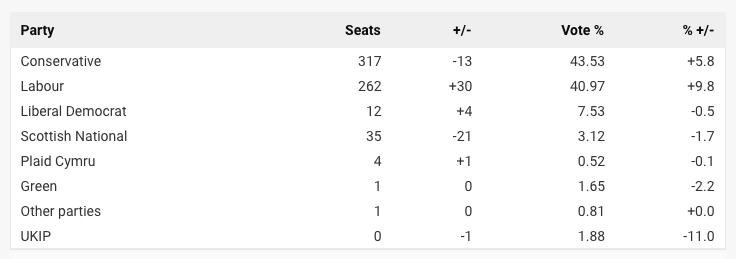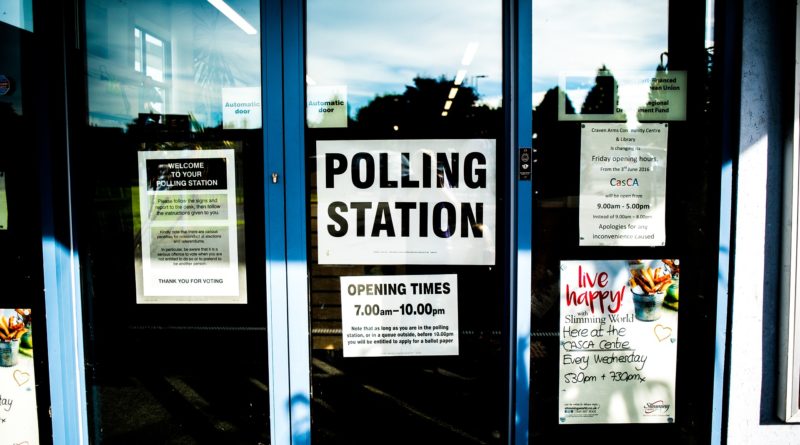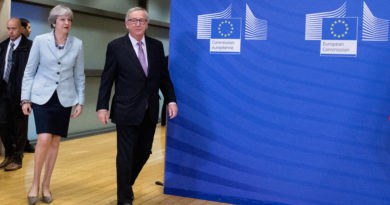Brexit still means Brexit but UK needs to mend bridges with the rest of Europe
An election called to give the British Prime Minister a stronger mandate to deal with Brexit ended on Friday morning with a hung parliament. Although the Conservatives remain the largest party of the country and Labour unexpectedly increased its number of seats, none of the parties reached the parliamentary majority of 326.
Final results (from the website Britain Elects):

As a result, the Conservative Prime Minister Theresa May entered into talks with Northern Ireland’s Democratic Unionist Party to forge an alliance. This is not short of controversy given the credentials of the DUP: a group that opposes abortion and same sex marriage, denies climate change and has alleged links with Saudi intelligence, as explained on the Open Democracy website. The alliance would also impact the stability of Northern Ireland, which is already shaken by the possible return of a border with the Republic – the only land border between the UK and the EU after Brexit.
Spoke w PM May -indicated my concern that nothing should happen to put GoodFridayAgrmt at risk & absence of nationalist voice in Westminster
— Enda Kenny (@EndaKennyTD) June 11, 2017
This was named the “Brexit election”. So what do these developments mean for Brexit talks and the future UK relation with the rest of Europe?
1. Brexit still means Brexit
First of all, no one is questioning the decision to leave the European Union made with the referendum of June 2016. At first sight, the British have followed the trend of other European elections this year. Like the Dutch in March and the French in May, they have rejected right wing populists. The UK Independence Party (UKIP), the proponent of Brexit, failed to obtain a seat even in the most anti-EU areas. But Conservatives and Labour have run on manifestos that fully accept the decision to leave the EU. Tories proposed a ‘hard Brexit’ promising the UK will leave the single market and the custom union. Labour offered to stay in the single market while ending free movement of people, an unrealistic solution that goes against the EU core principles.
On the other hand, the Liberal Democrats, the largest party aiming to stay in the EU, gained only 12 seats (4 more than in 2015). Their former leader Nick Clegg, a European at heart and one of the few British politicians with a deep understanding of the EU, was not re-elected. The pro-EU National Scottish Party also lost 21 seats. So if the election showed little support for the most extreme version of Brexit, it also didn’t show any intention to remain in the European Union.
2. “Fog in Channel. Continent cut off”
Seen from other European capitals, the result of the vote was a failure of Theresa May. “Chaos getting closer. May’s colossal mistake to call the election adds to the mistake of the Brexit vote,” titled the Spanish newspaper El Pais. “A cruel spring for Theresa May. The Conservative Prime Minister suffers a failure on all fronts,” said France’s Le Monde. “May’s defeat – She is not Thatcher,” concluded Italy’s Corriere della Sera. And Germany’s Deutsche Welle labelled the outcome a “devastating miscalculation.”
If the intention of election vote was to give the Prime Minister a stronger mandate to negotiate Brexit, it is hard to see how this can be possible with such views across Europe. Yet, a new government is being reappointed with little changes. The notorious newspaper headline “Fog in the Channel – continent cut off” may be a legend. But the perception that the UK ignores the political reality in the rest of Europe persists.
3. The countdown continues
Meanwhile in Brussels, the clock ticks towards the deadline of March 2019. The UK notice of withdrawal from the European Union was served on March 2017 and the Treaty says there are two years to complete the exit. Without a deal by March 2019, the UK will crash out of the EU falling under WTO rules.
We don’t know when Brexit talks start. We know when they must end. Do your best to avoid a “no deal” as result of “no negotiations”. #GE2017
— Donald Tusk (@eucopresident) June 9, 2017
#Brexit negotiations should start when UK is ready; timetable and EU positions are clear. Let’s put our minds together on striking a deal
— Michel Barnier (@MichelBarnier) June 9, 2017
The EU, Germany and other countries said that talks should start without delay, to avoid prolonging the uncertainty for people, businesses and countries. The European Commission, which leads the negotiations for the EU, set June 19 for the first exchanges. European leaders have Brexit on the agenda of the EU Council meeting of June 22 and 23.
The deadline of March 2019 could in theory be postponed with the agreement of the EU27. But this might create an awkward situation when the next European Parliament will be elected, in spring 2019. Should an outgoing UK still be represented there? The UK cannot afford to waste more time now.
4. Burning the bridges
In principle, a positive outcome is still possible. The website Left Foot Forward noted that a Conservative government might have the fortuitous advantage of negotiating Brexit with other European Conservatives. The heads of the top EU institutions, Donald Tusk (Council), Jean-Claude Juncker (Commission) and Antonio Tajani (parliament) come from political groups affiliated to the centre-right European People’s Party. The same is for the Commission Chief Brexit negotiator Michel Barnier, the German Chancellor Angela Merkel, who will probably be re-elected in September, and the Spanish Prime Minister Mariano Rajoy. And while France’s independent candidate Emmanuel Macron won the presidential election on a centrist programme, he appointed a government representing the entire political spectrum, including the Republican (and EPP member) Prime Minister Édouard Philippe.
But again, the UK went adrift. As the EPP is a strong supporter of the European project, in 2009 David Cameron decided to take the Conservatives out of the alliance to form a Eurosceptic group in the European parliament (the European Conservatives and Reformists). Theresa May’s strong anti-EU rhetoric, the accusations to the EU to interfere in the UK campaign and the way EU citizens in Britain have been treated since the referendum have probably burnt some of last bridges linking the Tories with European counterparts.
5. EU citizens’ rights more central than ever
While political games continue, EU nationals in the UK and British citizens in the rest of the EU keep living in a limbo. Immediately after the vote, groups such as British in Europe and the3million called on party leaders and newly-elected members of parliament to confirm existing rights and allow people to continue a normal life where they reside.
Politico reported that just before the election Theresa May asked her staff to prepare a generous offer in this regard. Whatever happens now, and whoever will be in charge, the UK needs to re-establish a positive dialogue with other EU countries. In this context, securing people’s rights will be not only good for those directly affected, but will also help the country mend the relation with the rest of Europe.
Claudia Delpero © all rights reserved.
Photo courtesy Pixabay.




